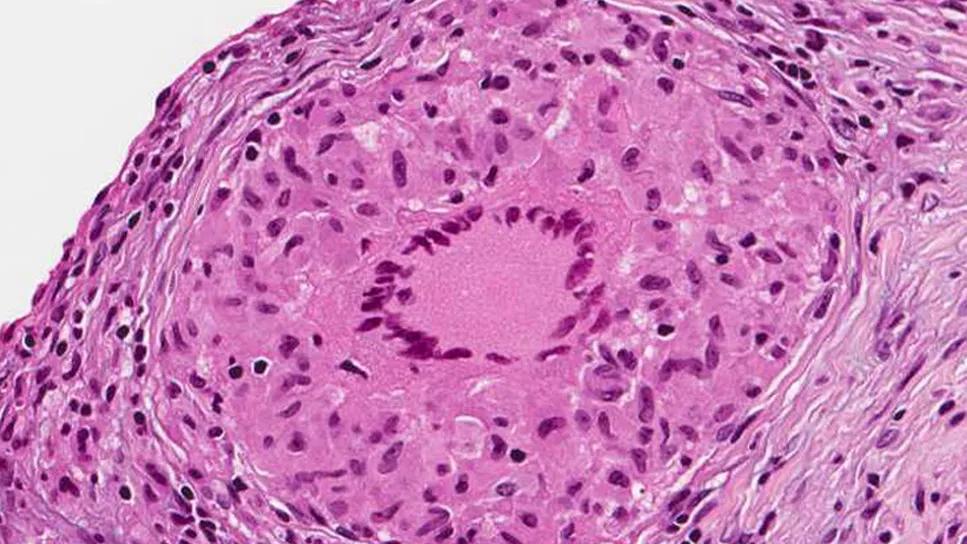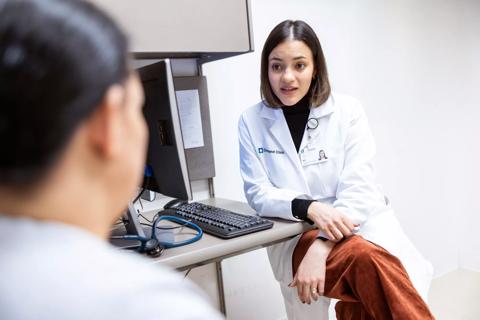Nature of disease poses challenges for patients and clinicians

By Patompong Ungprasert, MD, MS
Advertisement
Cleveland Clinic is a non-profit academic medical center. Advertising on our site helps support our mission. We do not endorse non-Cleveland Clinic products or services. Policy
Sarcoidosis is a chronic granulomatous disease of unknown etiology that is believed to be a result of complex interactions between genetic predisposition and environmental exposure.
This systemic disease can affect virtually any organ in the body. In fact, more than half of patients with sarcoidosis have inflammatory disease from sarcoidosis in two or more organs1. The multi-systemic nature of the disease poses a significant challenge to patients and clinicians, and close collaboration between the patient’s healthcare providers is often required.
The concept of a multidisciplinary team approach has gained popularity over the past few decades, particularly for diseases that typically involve psychosocial support and care from healthcare providers across disciplines. This multidisciplinary approach has been linked to better health outcomes, reduced cost and higher patient satisfaction2.
In rheumatology, this model of care is common, as rheumatologic autoimmune disorders tend to affect more than just the musculoskeletal system. At Cleveland Clinic’s Department of Rheumatologic and Immunologic Disease, this collaborative approach has been used in many areas, such as the Rheumatology-Dermatology Clinic led by Elaine Husni, MD; the integrative Vascular Neuroinflammatory Clinic, networking with stroke neurology, neuroimmunology, neuroradiology and neuropathology, led by Rula Hajj Ali, MD; and the Systemic Sclerosis-Interstitial Lung Disease, led by Soumya Chatterjee, MD.
Cleveland Clinic’s Multidisciplinary Sarcoidosis Clinic is one of the few such clinics in the country that offers comprehensive care for patients with sarcoidosis. Our team consists of physicians from different specialties who also bring experience in sarcoidosis. Pulmonologists Dan Culver, DO, and Manuel Lessa Ribeiro, MD, bring special expertise in pulmonary sarcoidosis. Cardiologists Christine Jellis, MD, PhD, and Ziad Taimeh, MD, have special expertise in cardiac sarcoidosis and advanced cardiac imaging study. Neurologist Brandon Moss, MD, has special expertise in neurosarcoidosis. And as a rheumatologist, I bring extensive experience using immunosuppression medications and biologic agents for treatment of musculoskeletal and other manifestations of sarcoidosis.
Advertisement
Care with our clinic starts with a phone consultation with our dedicated registered nurse, who gathers preliminary information from the patient and referring providers. The nurse, in collaboration with physicians, determines which specialists the patient needs to see, as well as necessary laboratory and imaging investigations. Appointments are scheduled to ensure that all of the required care will be completed within a span of few days, as our patients often travel from different states or even abroad. The physician team discusses and formulates a treatment plan together, which is shared with the patient at the end of the visit and again during follow-up by telemedicine.
Cleveland Clinic’s Sarcoidosis Clinic welcomes referrals, especially for challenging cases involving patients requiring multidisciplinary care.
References
1. Judson MA, Boan AF, Lackland DT (2012) The clinical course of sarcoidosis: presentation, diagnosis, and treatment in a large white and black cohort in the United States. Sarcoidosis Vasc Diffuse Lung Dis 29:119-127.
2. Selby P, Popescu R, Lawler M et al (2019) The value and future developments of multidisciplinary team cancer care. Am Soc Clin OncolEduc Book 39:332-340.
Advertisement
Advertisement

Initial findings demonstrate improved symptoms and reduced steroid dependence

Unraveling the TNFA receptor 2/dendritic cell axis

Nasal bridge inflammation, ear swelling and neck stiffness narrow the differential diagnosis

Genetic testing at Cleveland Clinic provided patient with an updated diagnosis

From dryness to diagnosis

Multiple comorbidities are associated with pediatric psoriasis

Untreated seropositive erosive RA led to peripheral ulcerative keratitis

New clinic meets Hispanic patients where they are